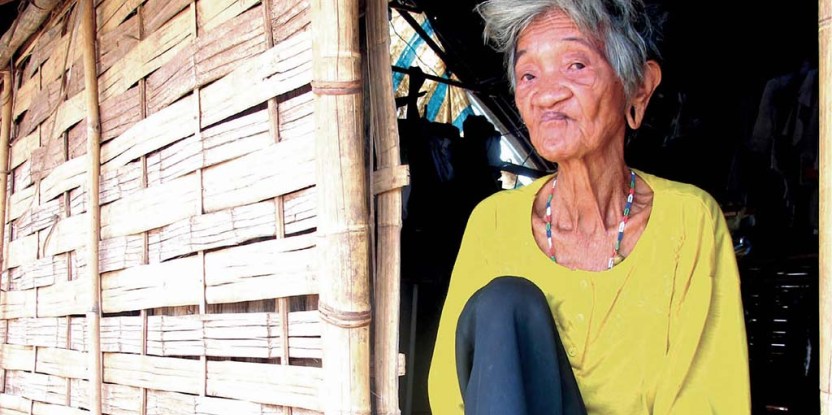HANOI, Vietnam – Vietnam is no stranger to forest conservation payment schemes. Its national Payments for Forest Environmental Services (PFES) program offers incentives to communities who sustainably manage and protect their forests, by compensating them for their efforts.
REDD+ is another performance-based scheme that aims to reward and compensate communities and governments for protecting forests and reducing emissions from deforestation and forest degradation.
Now Vietnamese officials are considering how the two approaches can be combined, linking REDD+ to the existing PFES system.
But while REDD+ and PFES are similar in their goals of protecting forests and supporting local livelihoods, experts caution that they should not be viewed as one and the same.
Everyone’s looking at how to make REDD+ a reality, especially in terms of distribution of payments and benefits. In Asia, Vietnam’s PFES is a leading example of a nation-wide benefit-sharing mechanism in practice. Vietnam is examining how lessons from PFES can be applied to REDD+ projects, but these can also benefit other countries.
The main lesson? REDD+ activities need to be context-specific.
Scientists from the Center for International Forestry Research (CIFOR) say that while Vietnam can learn from its PFES experience, the country needs to stay flexible in designing a REDD+ program and payments system – one that is effective, efficient and equitable.
People tend to ask which model is the best, but it would be counter-productive to choose one payment arrangement for the whole country
The PFES system in Vietnam is well underway. Official reports state that to date, PFES has earned VND 5,000 billion in revenue, protected 3.5 million ha of forest and is creating jobs and supporting rural livelihoods for some 355,000 households participating in the scheme.
Building on the PFES model to develop REDD+ could save transaction costs, say scientists – though adopting this strategy also has its drawbacks.
“It’s easier to start with what you know, but then you also risk being limited to that system and exacerbating some of the existing shortfalls of that system,” said CIFOR senior scientist Grace Wong, at a PFES workshop held in Hanoi last November and convened by the Vietnam Forest Protection and Development Fund (VNFF), which manages PFES.
Studies by CIFOR have shown that bundling social and environmental programs can raise the incentives to leverage environmental or sustainable development outcomes. But rigorous monitoring and evaluation is needed to truly understand the programs’ impacts.
Adapting PFES for REDD+
The government of Vietnam is currently trying to adapt its PFES system for REDD+ programs.
Baku Takahashi, a REDD+ Technical Advisor for the Japan International Cooperation Agency Sustainable Natural Resource Management Project based in Hanoi, says that combining the PFES and REDD+ approaches to compensation may have value, though each system may be implemented differently.
“Vietnam has a long history of implementing PFES, and the REDD+ fund would be under VNFF,” explained Takahashi. “Current REDD+ discussions are focused on how the government can deliver payments to local communities, in the same way that PFES does. In that sense, lessons learned from PFES are very important.”
But the responsibility for achieving REDD+ outcomes lies beyond the local level, otherwise too much pressure is placed on households to achieve reduced emissions outcomes. Changes in governance and policies are needed at various levels to meet the global (or bilateral) commitments for REDD+ financing.
At the Hanoi workshop, Takahashi recommended that initial funds should first be strategically invested at the national level to strengthen the REDD+ policy and technical infrastructure. After that, the government can identify how to distribute those payments at the local level.
REDD+ payment system crucial
As for other countries trying to implement REDD+, the reliability of payments will be an important factor in determining the program’s success in Vietnam. Greater assurance about finance could bolster policy commitments and turn REDD+ rhetoric into action.
Yet because there is uncertainty over REDD+ financing, the program has not yet been fully operationalized in Vietnam, neither through national policies or at the subnational levels.
The process is as important as the outcome. Having proper consultations and sharing full information with local communities and stakeholders can help to create buy-in
But progress is visible. Vietnam is currently preparing guidelines for REDD+ implementation at the provincial level. These need to be flexible to accommodate local needs across the country and to take into account the perspectives of multi-stakeholder groups.
“We can see how different provinces have different PFES arrangements,” said Takahashi. “People tend to ask which model is the best, but it would be counter-productive to choose one payment arrangement for the whole country. This applies for REDD+ as well as PFES.”
Guiding REDD+: It’s all in the process
Before guidelines are issued, it’s more important to focus on assessing the local context, believes Takahashi.
“If you can properly assess the local situation, the nature of forest ownership, management and use in that province or district,” he notes, “then you can look at the different payment options that provide the best result for that place.”
Wong agrees, “The process is as important as the outcome. Having proper consultations and sharing full information with local communities and stakeholders can help to create buy-in.”
So what comes next for REDD+ in Vietnam?
Wong stresses that an effective, efficient and equitable REDD+ will require systematic learning from both PFES and REDD+ pilot sites to inform policy. Understanding the implications of land-use decisions at multiple levels, and integrating local perceptions, preferences, capabilities and sociocultural diversity into REDD+ policy design will improve equity and sustainability outcomes.
One thing is certain: Vietnam’s commitment to PFES and its efforts to guide REDD+ into implementation is an important part of the country’s journey to improve forest governance and enhance the well-being of forest communities.
We want you to share Forests News content, which is licensed under Creative Commons Attribution-NonCommercial-ShareAlike 4.0 International (CC BY-NC-SA 4.0). This means you are free to redistribute our material for non-commercial purposes. All we ask is that you give Forests News appropriate credit and link to the original Forests News content, indicate if changes were made, and distribute your contributions under the same Creative Commons license. You must notify Forests News if you repost, reprint or reuse our materials by contacting forestsnews@cifor-icraf.org.


